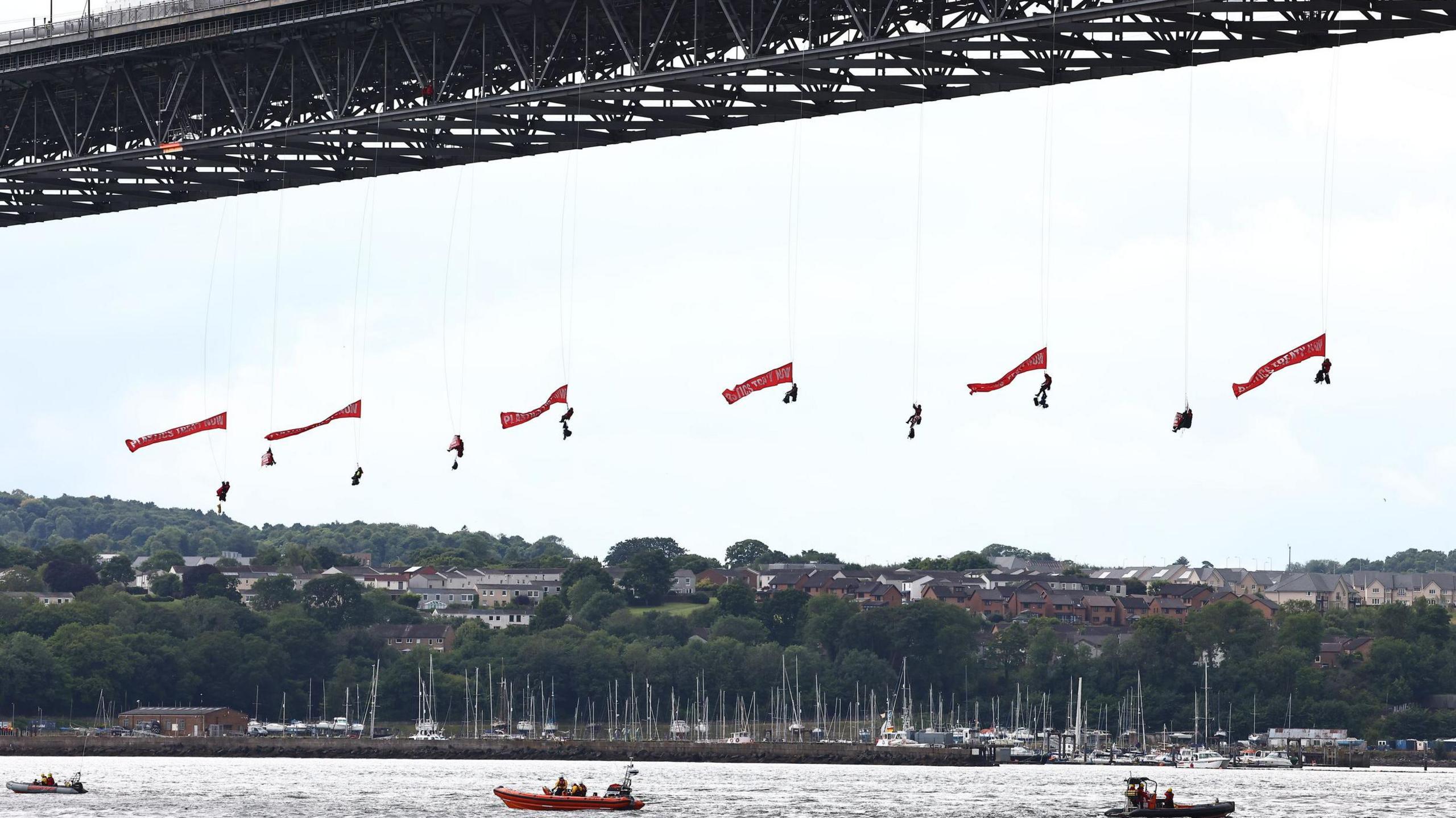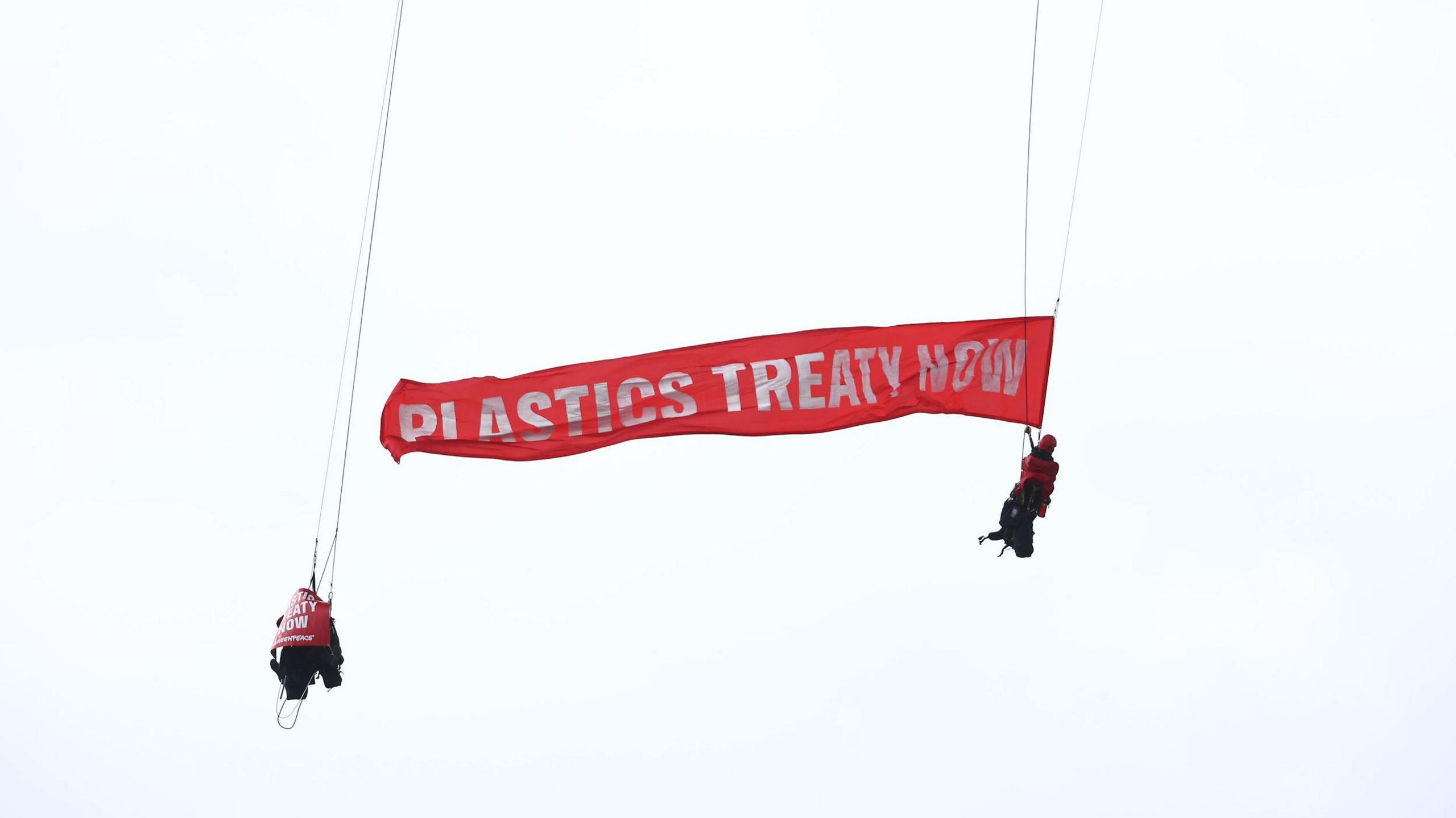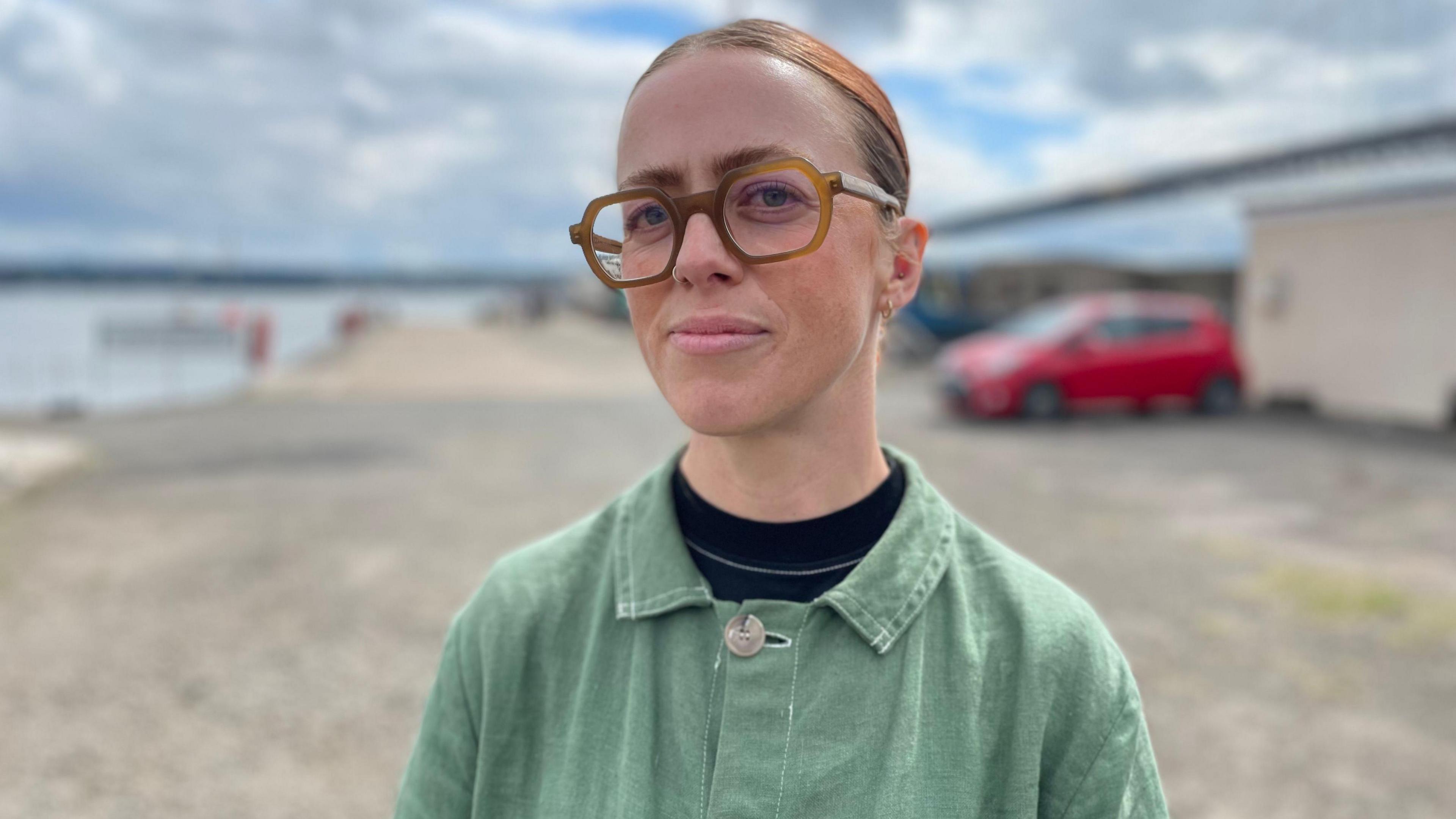Forth Road Bridge closed after Greenpeace protest

Greenpeace protesters abseiled from the Forth Road Bridge during the protest
- Published
The Forth Road Bridge has been closed after environmental protesters began abseiling off the side in a demonstration against a tanker carrying fracked gas.
Greenpeace said 10 activists were taking part in the protest against the Ineos ship Independence, due to arrive at Grangemouth on Friday.
The group accused the firm, and its owner, Jim Ratcliffe, of attempting to sabotage a global plastics treaty due to be voted on by UN member states in Switzerland next month.
Ineos said described the action by Greenpeace as "dangerous, disruptive, and entirely counterproductive," adding it "threatened skilled jobs in Scotland".
Police Scotland have urged drivers and pedestrians to avoid the area around the bridge.
Images from the scene show protesters on wires holding red banners displaying a number of slogans decrying Ineos' influence in the plastics industry.
Shipping data shows the tanker, which sails under the flag of Malta, arrived in the Firth of Forth in the early hours of Friday.
Global plastic talks collapse as oil states rebel
- Published1 December 2024
Greenpeace said the "climbers" were being supported by a rescue team on the bridge and a boat below and would remain suspended 25m (82ft) above the Firth of Forth's main shipping lane.
The group has blocked the deep water shipping lane, preventing larger vessels from accessing the channel, however smaller boats are unaffected.
An RNLI boat was dispatched to the scene from a nearby station.
Police Scotland said they were "engaging" with those involved.
The bridge has been closed to private transport since 2018 following the opening of the Queensferry Crossing and is now used as a public transport corridor.

Greenpeace accused Ineos of attempting to influence the signing of a global plastics treaty
In a statement, Greenpeace claimed the plastics industry was planning to send "hundreds of lobbyists" to the meeting of UN members in Geneva between 5 and 14 August.
Ineos said it only planned to send two people to the global treaty meeting.
Greenpeace has called on governments to commit to cutting global plastic production by at least 75% by 2040.
More than 200 nations met in South Korea in December last year for what was scheduled to be the final round of negotiations on the treaty.
However, those talks collapsed after a group of oil-producing nations rebelled.

Greenpeace programme director Amy Cameron said she was concerned Ineos would try and block a global plastics treaty
Greenpeace programme director Amy Cameron said she was concerned Ineos and owner Ratcliffe, who also owns a minority stake in Manchester United, would "do everything they can to stop" an agreement being signed.
She added: "Ratcliffe tries to distract us with sports teams and sponsorships, but we're not going to let him fill our planet with plastic, so he can fill his pockets with profit.
"Ratcliffe is trying to block a strong Global Plastics Treaty, so today we're blocking him."
'Dangerous and disruptive'
An Ineos spokesperson said the materials produced by the firm were used in a number of everyday products, including the safety harnesses used by the protesters.
In a statement, they added: "Unless groups like Greenpeace stop attacking companies like Ineos and start supporting the rollout of waste infrastructure and advanced recycling, they are actively contributing to the problem.
"They're standing in the way of the very solutions that are needed, whether we produce more or less plastic.
"If Greenpeace truly cared about outcomes, they'd stop targeting the companies delivering change and start supporting serious policy reform on waste collection and global recycling standards.
"We will continue to operate safely, legally, and responsibly and we will continue to stand up for British industry, energy security, and practical environmental progress."